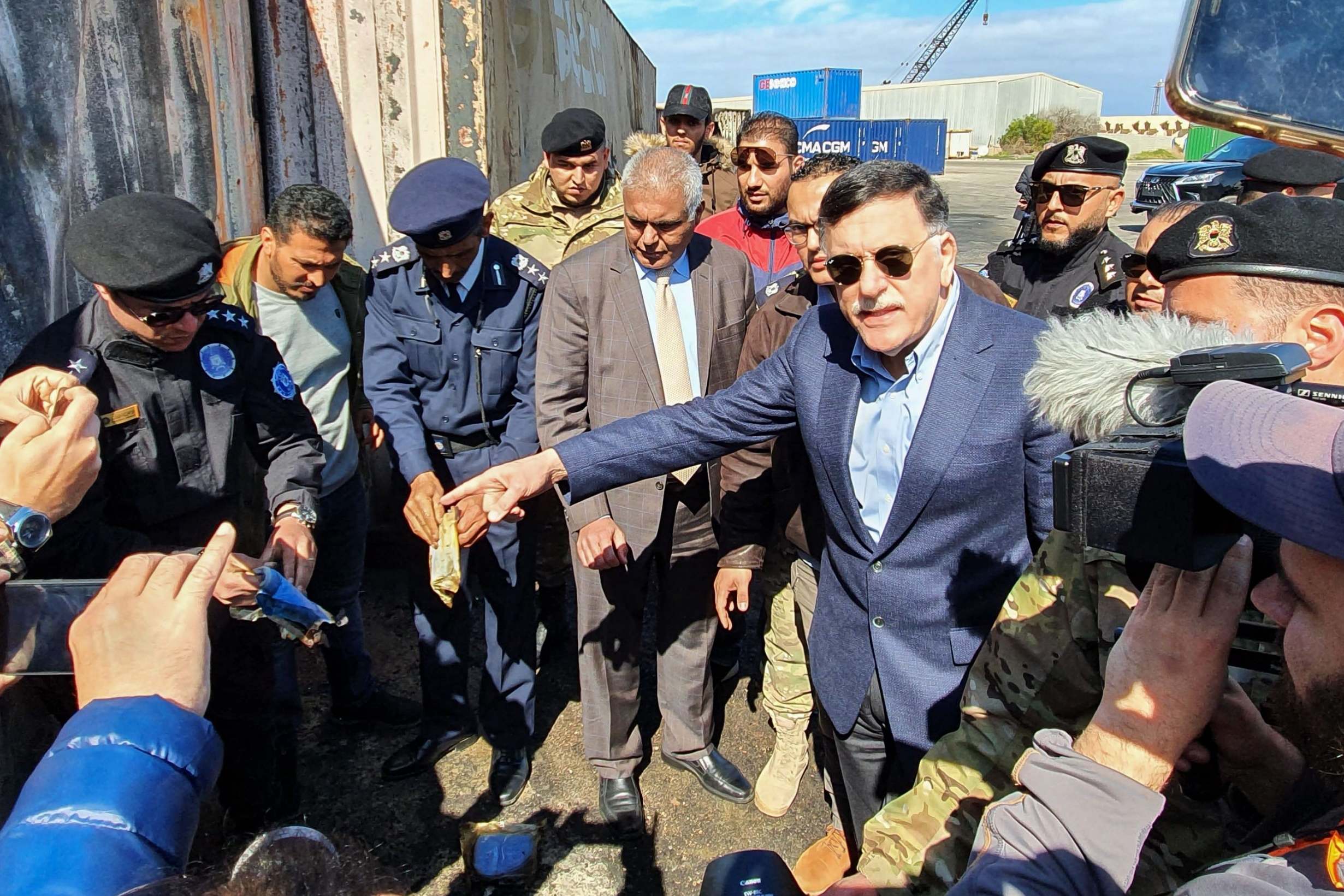Libya peace talks on brink of collapse after deadly attack on vital seaport
Western powers silent as warlord hammers lifeline for civilians

The latest attempt to bring about peace in Libya appeared to unravel Wednesday a day after a rogue warlord tacitly backed by the west rocketed the capital's main port, its lifeline to the world.
Citing that attack, which killed three civlians, the internationally recognised government of Libya on pulled out of Geneva peace talks with rogue warlord Khalifa Haftar, who is backed by France, Russia and the United Arab Emirates.
The decision by the United Nations-brokered Government of National Accord (GNA) to suspend its participation in the talks in Geneva is one of many setbacks in international efforts to halt the ongoing civil conflict in Libya. It comes as a fragile truce negotiated by world powers last month continues to unravel.
“Negotiations don’t mean anything without a permanent ceasefire [that] guarantees the return of displaced people and the security of the capital and the other cities,” said a statement issued by the GNA.
The war in Libya pits forces allied with the Tripoli government controlling the country’s heavily populated northwest against the Libyan Arab Armed Forces of Khalifa Haftar, a former army officer and longtime Washington resident who controls much of the country’s east and south.
Last April, Mr Haftar’s launched a surprise attack on the capital, a battle that continues to drag on on the city’s outskirts.
More than 900,000 people are in need of humanitarian assistance and more than 345,000 have been displaced as a result of the conflict, UN humanitarian coordinator Yacoub el-Hillo said in a video briefing this week.

"Unless we speak so bluntly and openly, unless we start naming and shaming… the reality on the ground will remain appalling," he said.
Mr Haftar’s forces offered contradictory explanations for why they struck the port, which serves as the gateway for fuel, food, and other supplies into the capital and much of western Libya. At first his spokesman said his forces were targeting a Turkish ship carrying weapons into the facility and then said the target was an arms depot at the port. At least five civilians were also injured in the attack.
The shelling of the civilian installation elicited no response from the international community. It was likely an attempt by Mr Haftar to pressure the GNA and terrify the capital’s civilian population with a demonstration of his impunity.
It came as Mr Haftar received United States ambassador Richard Norland in eastern Libya, and a day before he visited Moscow for consultations with defence minister Sergei Shoigu.
The White House supports Mr Haftar even as the State Department publicly backs the UN-brokered government. Russian mercenaries likely financed by Mr Haftar’s Arabian Peninsula patrons are backing Mr Haftar’s forces.
France provides Mr Haftar with diplomatic cover largely because of weapons deals it has made with his sponsors in Egypt, one of the few countries to ever purchase its Rafale fighter jets.
The relatively inexperienced French president Emmanuel Macron also appears to have been seduced by Crown Prince Mohammed bin Zayed, de facto ruler of the UAE, which financed the Rafale deal, backed the coup which crushed Egypt's democracy and installed its current ruler, and opposes the populist Islamist ideology of some elements within the Tripoli government.
Turkey, seeking to enhance its presence over the eastern Mediterranean and aid an ideological ally, is the only country now openly supporting the Tripoli government with weapons, military advisers and mercenaries, eliciting protests from Mr Haftar’s backers, including France.
The European Union on Monday announced plans to implement a naval blockade to enforce an arms embargo on the country, ignoring the probability that most of Mr Haftar’s weapons are transferred via land or air from Egypt.
The Tripoli-based government this week insisted it has the right to forge military alliances with whomever it pleases.
Join our commenting forum
Join thought-provoking conversations, follow other Independent readers and see their replies
Comments
Bookmark popover
Removed from bookmarks